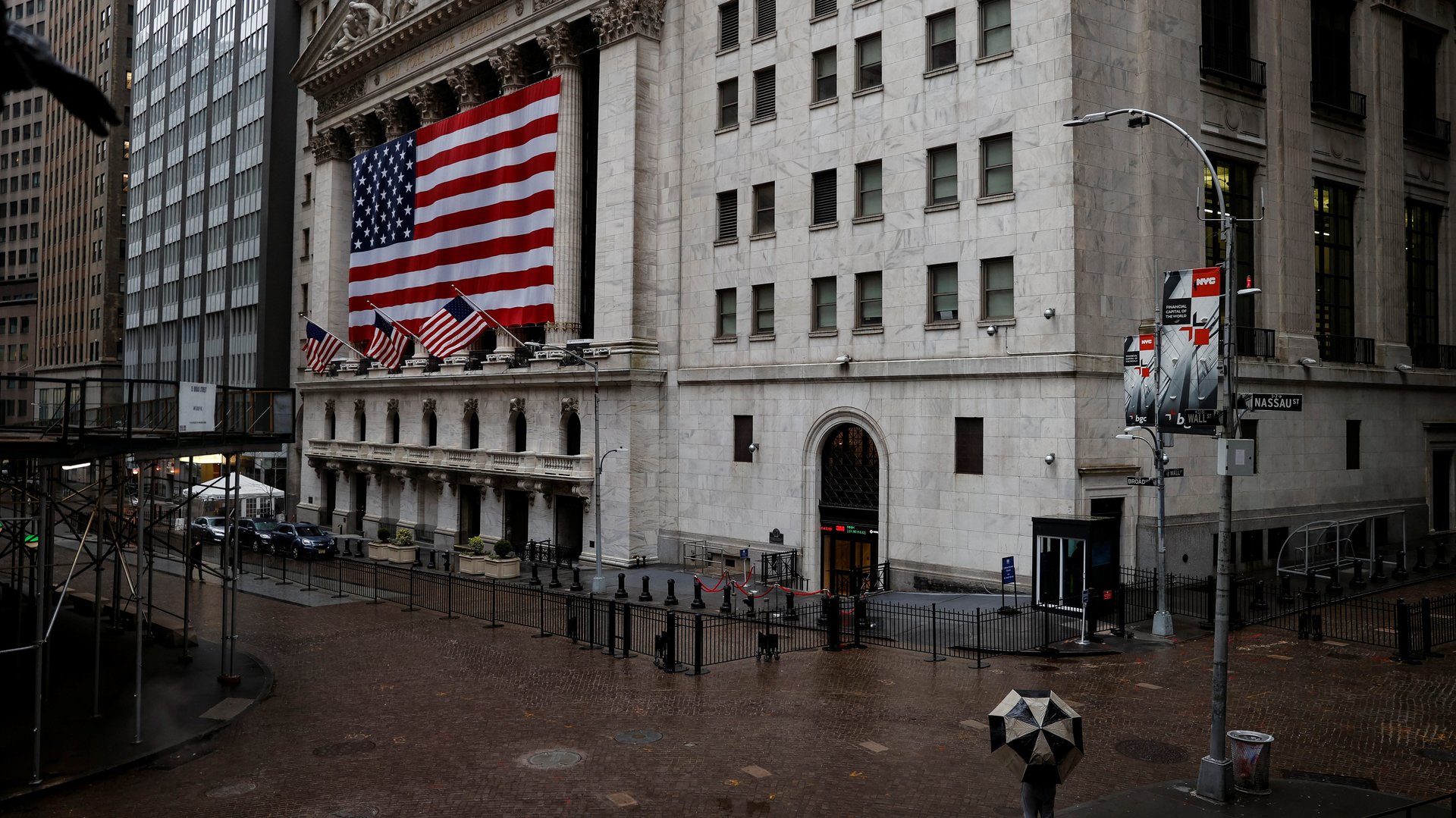Boeing, cruise lines lead stock market rally as $2 trillion in stimulus nears
Companies that could benefit from the US government’s vast $2 trillion package of aid are among the leaders in stock market gains today. The rally in cruise line and airline stocks comes as more than 150 economists urge congress to bailout workers before companies.


Companies that could benefit from the US government’s vast $2 trillion package of aid are among the leaders in stock market gains today. The rally in cruise line and airline stocks comes as more than 150 economists urge congress to bailout workers before companies.
Aerospace company Boeing soared 30% on Wednesday after suffering steep market losses this month as officials shut down travel and whole swaths of commerce to reduce the spread of the novel coronavirus pandemic. Norwegian Cruise Line Holdings jumped and Royal Caribbean jumped more than 20%, while Delta climbed 18%.
Congress is close to passing an aid package that’s more than twice the size of the stimulus measures rolled out in the aftermath of the 2008 financial crisis. The wide array of measures are likely to include $500 billion to back loans for companies and industries, including the airline sector, as well as states. The package is also expected to include $1,200 payments for most adults and $500 per child, as well as four months of beefed up unemployment insurance.
While the full text of the package hasn’t been released, the airline industry has been lobbying for assistance and Boeing has said it supports billions of dollars of aid for the aerospace industry. (Boeing’s CEO told Fox Business that the company doesn’t need the government to buy an equity stake in the aerospace giant.) US president Donald Trump has said the US must protect the cruise line business.
The looming global recession is different from any in recent memory. Whereas downturns typically reflect pessimism and a loss of confidence among investors and businesses, this one is being self-induced as governments deliberately turn off their economies. How businesses emerge will depend on the interaction between efforts to contain the virus and measures meant to preserve an economy under deep freeze.
Loans for teetering companies will come from a $425 billion fund managed by the Federal Reserve, as well as another $75 billion for industry-specific loans for sectors like hotels and airlines, according to the New York Times. Companies that benefit from the fund can’t do stock buybacks while getting government help as well as for an additional year afterwards. It will be overseen by an inspector general and congressionally appointed board. Senior government officials, including the Trump family, aren’t eligible for loans through the fund.
That doesn’t go far enough for a large group of economists.
“Bailouts allow investors to keep all the profits in good times without bearing the losses in bad times,” according to the letter signed by economists from institutions including Stanford, University of Chicago, and Massachusetts Institute of Technology. “Instead, bailouts impose losses on taxpayers, including those most in danger of losing their paychecks.”
The academics point out that companies can continue operating even while they’re in bankruptcy—it doesn’t necessarily result in liquidation. They argue that workers, many of whom are the most affected by shelter-in-place orders, are the ones the government should be helping.
“It does not make sense to count on corporations and their bailed-out investors to act as middlemen and pass on this government relief to those who are truly affected,” they wrote. “When you bail out a large corporation, the people you are actually bailing out are the investors in that corporation.”